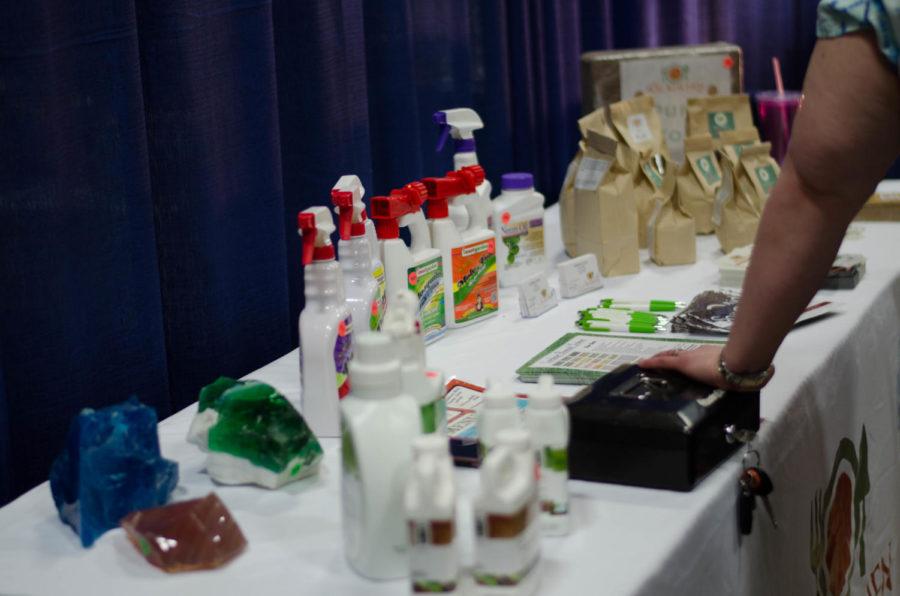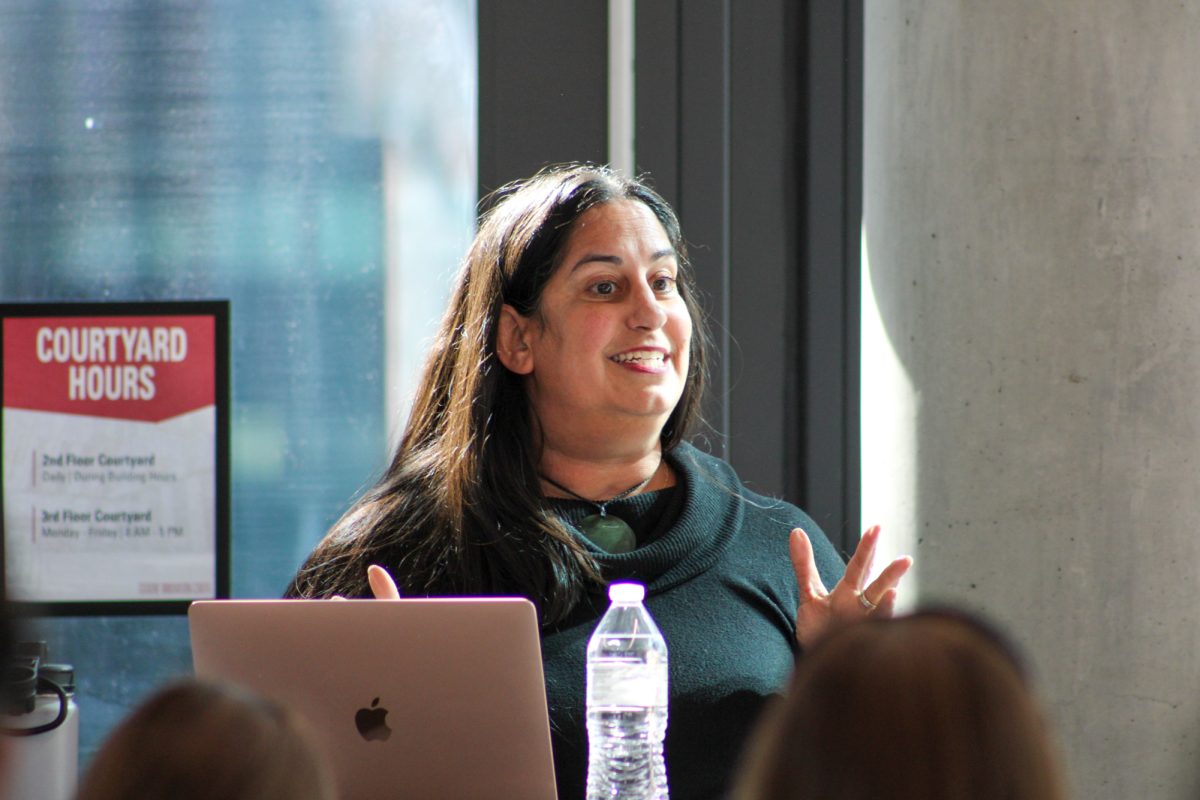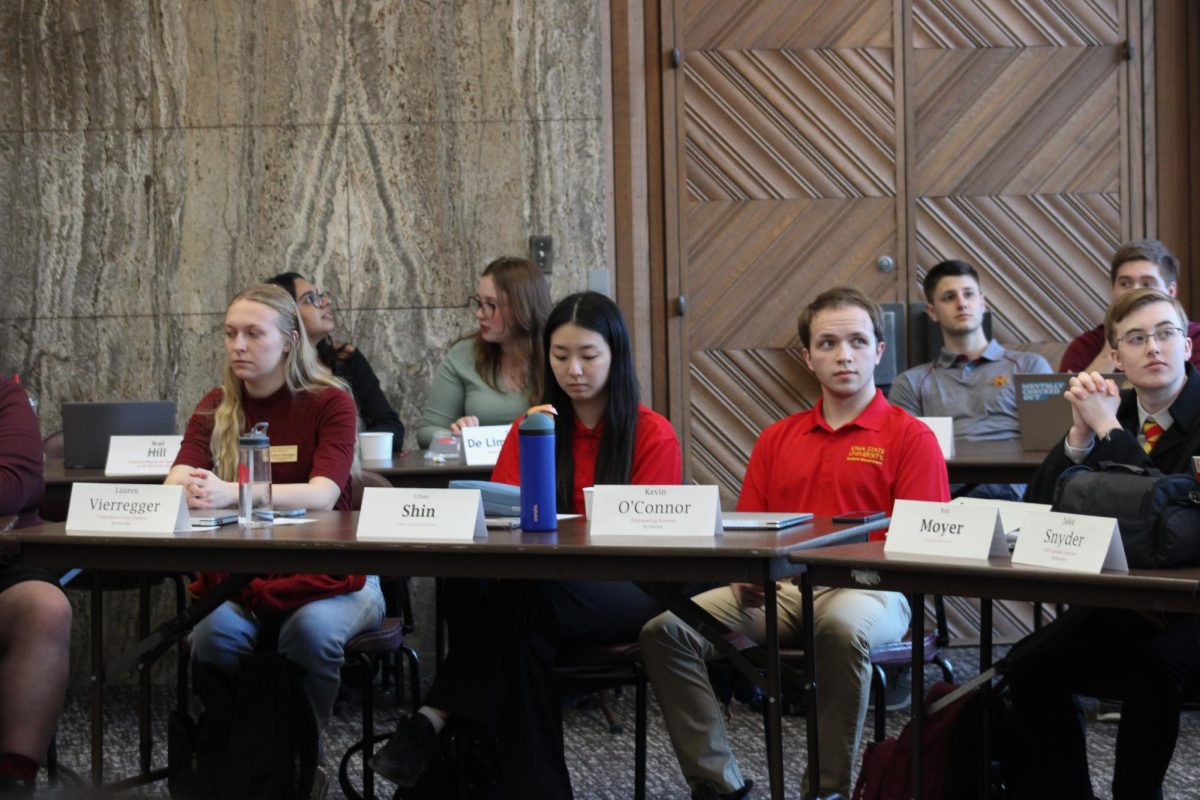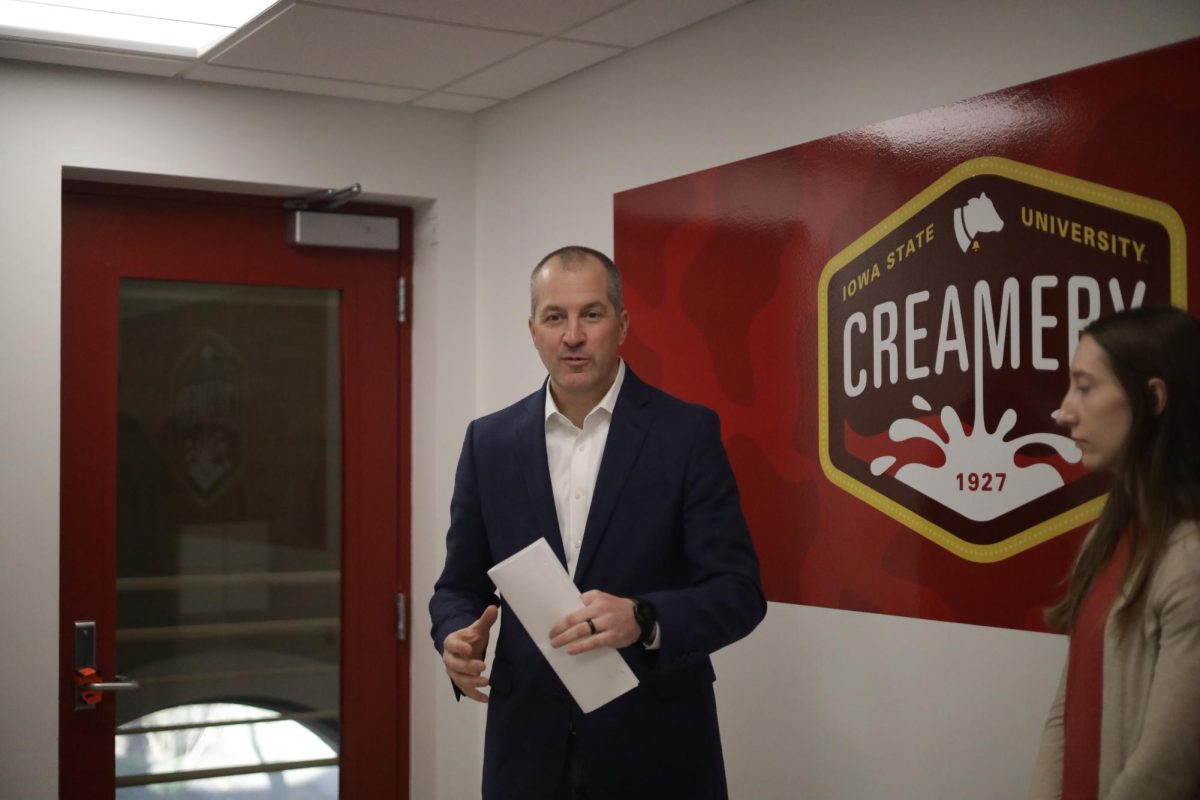Ames EcoFair welcomes unique environmental businesses
April 6, 2015
The city of Ames held its first annual EcoFair, formerly the Energy Fair, on Saturday to give Ames residents the chance to learn more about water conservation, reducing electric consumption, Energy Star appliances and other environmental issues.
Participants at this years’ EcoFair had the opportunity to talk with city of Ames staff, interact with vendors and learn about energy-saving products and services. The event also provided conservation materials and information about the city of Ames’ EcoSmart programs for the electricity, water, watershed, transportation, housing and trash departments.
Not only was the EcoFair beneficial to the participants, but it also gave local eco-friendly businesses the opportunity to advertise themselves. One small family business called “Goats on the Go” specializes in sustainable vegetation management.
“We live on a small acreage which is too small to grow crops on but too large to mow,” said Aaron Steele, an Ames resident and one of the business owners. “So, we decided to get some goats to give the kids some experience and to give them some chores to do in the summer.”
Steele said his plan was to sell the goats at the end of the summer, but that plan didn’t quite work out.
“We enjoyed them so much that we decided to keep them,” Steele said. “We then started looking for ways that we could have more goats, and we were vaguely aware of rising operations like ours in other places in the country, so we decided to test the market.”
Steele’s goats, like most others, chew through noxious weeds, brush and invasive species, and offer an eco-friendly alternative to chemicals and gas-powered machinery. With their “targeted grazing” services, Steele’s crew manages everything including delivery, containment and management while they’re on site.
“There’s kind of a multi-pronged set of benefits to using goats. Goats can replace the use of machinery and herbicides. They also end up driving nutrition from vegetation that nobody wants and no other livestock will eat,” said Steele, who said the United States is a net importer of goat meat, meaning there is market for goat meat both locally and nationally.
“We even use their manure. We have their manure composted, and we sell a variety of compost products both literally and figuratively on the other side of our goat operation,” Steele said.
Steele said he plans to expand his business because there is demand for both grazing services, as well as goat meat.
Another organization represented at the EcoFair was Iowa State’s own PrISUm Solar Race Car Team, along their most recently built solar car, called “Phaëton.”
“We build a brand new car every two years, and this is Phaëton’s second year,” said Nathan Coonrod, a freshmen majoring in electrical engineering.
Team PrISUm will be racing Phaëton at the American Solar Challenge this summer at the end of July in Austin, Texas. The team is also dedicated to educating the public about advances in vehicle efficiency and the capabilities of solar energy.
“The industry is also very interested in what we do. We have a lot of people who, because of this team, end up working for Boeing. We had a member this summer who worked for SpaceX in California. A lot of places like that are really interested in our members because of the problems that they solve here,” said Coonrod.
Although regulations are not yet known for the 2016 American Solar Challenge, Team PrISUm has already started the design process for their newest solar race car.







